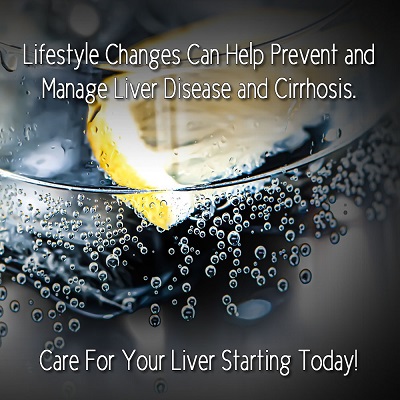 The liver is an essential organ that aids in the digestion of food to distribute nutrients to the body, and filters and removes toxins. It’s also the largest organ inside the body, about the size of a football, so it’s worth taking care of!
The liver is an essential organ that aids in the digestion of food to distribute nutrients to the body, and filters and removes toxins. It’s also the largest organ inside the body, about the size of a football, so it’s worth taking care of!
Various factors can damage the liver, including viruses, drugs, alcohol, obesity, and genetics. When severe, the damage can lead to scarring, called cirrhosis. Cirrhosis is life-threatening because it can cause liver failure.
Liver diseases and cirrhosis can develop due to hepatitis viruses and other infections that can spread through contaminated water, blood, food, and respiratory particles. Autoimmune diseases and genetics can also lead to liver damage. Other risk factors include obesity, type 2 diabetes, and exposure to harmful chemicals and toxins.
During the early stages of liver disease, you may not have noticeable symptoms. As they progress, you may have yellowish skin and eyes, swelling and pain in your abdomen, dark urine, pale stools, chronic fatigue, loss of appetite, and nausea.
Cirrhosis is not curable, but early detection can improve the condition of the liver and may allow it to heal. Also, lifestyle changes can help you prevent liver damage, as well as manage the symptoms of liver disease or cirrhosis if you have been diagnosed.
Here are the lifestyle changes you should start doing now.
Don’t Drink Alcohol or Smoke
Alcohol is a huge factor that causes liver damage. When you consume too much alcohol, the chemicals in the body that remove scar tissue change, therefore, scars are not easily removed and can begin to build up in the liver. It’s best to avoid drinking alcohol to protect and care for your liver. After all, it was not designed to be an alcohol filter.
You must quit smoking to improve your overall liver health too. Tobacco smoke contains chemicals that can cause inflammation of the liver, which can result in the liver scarring over time.
Eat a Nutritious Diet & Drink Plenty of Water
Eat a healthy and balanced diet that will give you the essential nutrients for your liver. Cut down on salt to reduce fluid buildup. Also, eat foods that are rich in fiber. Eat fruits, vegetables, beans, and grains. Depending on your condition, you might have to increase or decrease your protein intake. Avoid shellfish and other raw seafood, such as oysters.
Here are some liver-friendly foods:
- Greek yogurt
- Tofu, brown rice and oats
- Olive oil, fresh herbs, garlic and ginger
- Coconut water and lemons
- Lean chicken
Make sure you drink water to keep yourself hydrated. Doing so will help your liver to function better. You can add a dash of lemon juice to your water because your liver will benefit from that too.
Exercise Regularly & Lose Weight to Prevent Nonalcoholic Fatty Liver Disease
A sedentary lifestyle can lead to obesity, which puts stress on the liver. Be physically active and make it a habit to exercise at least 150 minutes a week. It will help boost your energy levels, prevent obesity, and improve your liver function. Regular exercise can also help reduce muscle loss due to liver disease. It can also improve your bone density.
Obesity can lead to nonalcoholic fatty liver disease, which is why you need to maintain a healthy weight. Keeping your weight at a normal level will also help control blood sugar levels, improve the liver cellular structure, and reduce inflammation.
Practice Good Hygiene & Medicinal Care
Keep yourself away from infections by practicing good hygiene. Wash your hands with soap and water regularly, and keep your food safe. Make sure that your hands are clean when you prepare your food and when you eat.
As your liver is vulnerable, don’t take medicines and herbal supplements without your doctor’s clearance. The liver will have difficulty filtering them, which can worsen your condition. Be careful with any type of pills, which may have harmful chemicals and toxins.
When to See Your Doctor
The liver is a crucial organ that keeps toxins away from your system. If you experience persistent signs and symptoms, consult your doctor immediately. Early detection of the problem can allow your liver to heal, so you need proper diagnosis and treatment.
Remember the lifestyle changes mentioned above. The healthy choices and habits you make now can help your liver get healthy again, or at least help manage any liver disease or cirrhosis. Don’t you agree that anything you can do to help improve your health and life is worth doing? It can also help prevent further complications.






